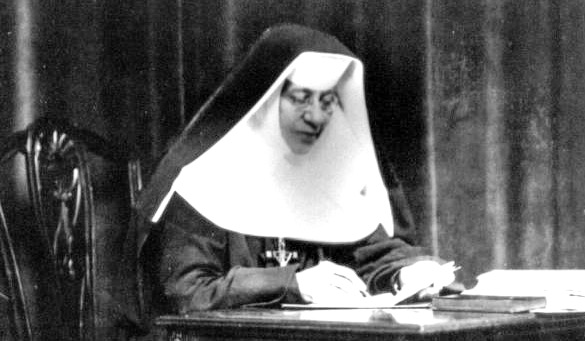
“Offer it up!” For more seasoned Catholics, this recommendation conjures up images of a stern old nun denying children recess, candy, or a homework-free weekend.
For all of us, though, the idea of offering any deprivation or suffering for the benefit of our own or others’ souls is a time-honored tradition. We give things up for Lent in order to strengthen our will to good and our dependence on God. We sacrifice something we want or even need in order to benefit someone else. We deal with illness or injury gracefully and tell God that we trust that what we are going through can serve some good purpose.
Over the centuries, disciples and saints have sacrificed comfort and convenience to travel to foreign lands and spread the Gospel. They have given away time, leisure, wealth and property on behalf of others. We might think of St. Katharine Drexel, whose feast comes up on March 3. An heiress to her Philadelphia family’s fortune, she responded to a call to a religious life and founded the Sisters of the Blessed Sacrament for a special mission to Native American and African American people. Schools on reservations and in ghetto neighborhoods, Xavier University in Louisiana, and numerous social service programs operate to this day because her inheritance funded them.
There is more to her story, though, than travel on horseback and eyestrain suffered in poorly lit, shabby headquarters. After a very active life traversing the South and the Southwest in particular, she had a debilitating heart attack. For the last 20 years of her life she was essentially an invalid. A wooden — and, by today’s standards, very primitive — wheelchair is one of the adornments of her convent room on display at the St. Katharine Drexel Shrine in Bensalem, Pa.
Biographers describe the latter part of her life as contemplative. Her daily schedule focused on eucharistic adoration. In this phase of limited activity, she became a powerhouse of intercession. The success of the missions she had founded, the well-being of her sisters, and the intentions of friends and acquaintances of her religious community were major themes of her prayer. As far as the discomfort of heart disease and limited mobility was concerned, Katharine managed to offer it all up.
Offering things up often means that our doing is converted to being — being still, being quiet, being in one place, being for others. Pope St. John Paul II, who beatified and canonized Mother Katharine, spoke of redemptive and creative suffering. Suffering, he said, is an invitation to self-emptying, to virtue, and to good example for others. Our cross-bearing can bless, and sometimes substitute for, the suffering of others. He notes that suffering calls us to perseverance, courage, and compassion.
Somehow, in the mystery of the Spirit, what we offer up gives extra leverage to God and the good. As St. Paul writes, our “momentary light affliction” produces “an eternal weight of glory” (2 Cor 4:17).


